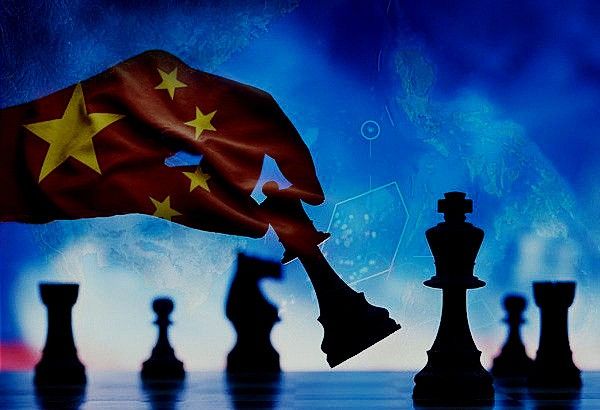How other countries adopted the 'orphaned' July 12 ruling on South China Sea

The July 12, 2016 Arbitral Tribunal Awards to the Philippines on the South China Sea dispute became an orphan immediately upon its announcement in the first month of the Duterte administration.
It was envisaged in January 2013, when the former Aquino administration filed a statement of claim against China in the Arbitral Tribunal of the United Nations Convention on the Law of the Sea (UNCLOS).
After a three-year wait, the five-judge tribunal determined that China’s claim to historic rights through its nine-dash line demarcation in the disputed maritime zone has no basis under international law.
In June 2016, China admonished the Philippines to discontinue the arbitration formalities. The Duterte administration meekly heeded China’s call with an ultra-low-key response to the awards.
The Philippines did not even ask China to abide by the arbitral award. It merely called on the concerned countries to exercise restraint and urged a peaceful settlement of the dispute through consultations among the parties in keeping with international law.
Intriguingly, the Philippines parroted China’s position that the claimant states should seek the full implementation of the non-binding Declaration on the Code of Conduct and the early conclusion of the negotiation for a Code of Conduct in the South China Sea.
President Rodrigo Duterte commented that the 2016 arbitral tribunal’s award to the Philippines is purely a bilateral issue between the Philippines and China, and is not a concern of the ASEAN.
The orphan has its charms
The July 12, 2016 arbitral tribunal ruling dealt a major legal blow to Chinese legitimacy on its territorial claims in the global commons even after China did not recognize the ruling and the Duterte administration disowned the case.
Third parties in the South China Sea dispute found the ruling, where China’s claim of historical ownership of the disputed waters is unsupported by legal and historical evidences, useful for their own respective agendas.
Malaysia is the first Southeast Asian country that used arbitral award in reaffirming its maritime rights against China.
On March 20, 2017, in responding to a query from a member of the Malaysian parliament about the presence of Chinese-owned vessels in waters off Sarawak, then Foreign Minister Datuk Seri Anifah Aman declared that China and Malaysia do not have overlapping territorial claims. He said that Malaysia and other ASEAN states do not recognize Beijing’s nine-dash line as it was not in accordance with international law, including the UNCLOS.
Indonesia followed Malaysia’s footstep when it renamed the northern reaches of its exclusive economic zone (EEZ) in the South China Sea as the North Natural Sea on July 14, 2017.
Indonesia is not a claimant state in the contested waters. However, it has disputes with China over fishing rights around Natuna Islands as it detained Chinese fishermen and expanded its naval presence in the area since 2016.
Indonesia’s renaming of the waters off Natuna Islands as North Natuna Sea was seen as an assertion of its sovereign rights on parts of the South China Sea that is also claimed by China under its legally discredited nine-dash line maritime boundary.
Orphan no more
In December 2019, Malaysia made a new submission on an extended continental shelf beyond the 200 nautical miles from the baselines from which the breadth of the territorial sea is measured to the United Nations Commission on the Limits of the Continental Shelf.
By extending its continental shelf in the South China Sea, Malaysia showed its support of the arbitral award that qualified all insular features of the Spratlys as having only 12-nautical miles territorial sea and no claim to generate their own EEZ and continental shelf.
Its action also rejected the validity of the nine-dash line claim, even though Malaysia was not a party to the Philippines’ legal case against China. Malaysia’s 2019 submission of its extended continental represented a positive step forward for coastal states to clarify their claims and seriously discuss maritime delimitation in accordance with UNCLOS and the 2016 arbitral tribunal’s interpretation of its Article 121 (3).
On May 26, 2020, Indonesia submitted a note verbale to the UN Secretary General Antonio Guterres stating that China’s wide-ranging claim implying historical rights in the South China Sea clearly lacks international legal basis; thus, Indonesia “is not bound by any claims made in contravention to international law.”
Indonesia is challenging China’s use of acrobatic legal terms such as “traditional fishing rights” and “jurisdiction over relevant waters” that Beijing uses in justifying its expansive maritime claims and encroach upon Indonesian EEZ off the Natuna Island.
Strengthened by the 2016 arbitral ruling, Jakarta is resisting China’s questionable maritime claims that are chipping away internationally recognized norms and the current rules-based maritime order.
Four years after it was announced, the July 12, 2016 arbitral ruling is no longer an orphan in the vast expanse of the sea. It has already been adopted by other Southeast Asian countries threatened by China's maritime expansion in the South China Sea.
Renato de Castro is a trustee and convenor of the National Security and East Asian Affairs Program of think tank Stratbase ADR Institute.
- Latest





























